Ebook
Top Takeaways from Trust ’23
The Precisely Data Integrity Summit

Expert insights into the importance of trusted data, and how to ensure data integrity in your business
Thousands of data professionals worldwide, two (virtual) days, countless insights and practical takeaways for businesses across industries … it all came together at Trust ’23, our annual Data Integrity Summit on May 16 & 17, 2023.
Did you miss the live broadcast? Not to worry – there are plenty of ways to catch up on all the shared knowledge, insights, and inspiration. All event recordings are available to watch on demand, and we’ll be covering the highlights from our keynote sessions in this eBook.
Let’s dive in and empower better business decisions grounded in trusted data.
Keynote
[Data] Everything, Everywhere, All at Once
Macro forces have created a whirlwind of challenges across all industries in recent years.
And in times like these, agility is more critical than ever. Businesses are achieving that agility with the help of technology – but to maximize your return on investment, these initiatives need a foundation of high-integrity data.
Josh Rogers, Precisely CEO, kicked off our Data Integrity Summit with a keynote exploring the macro trends and challenges that have forced organizations to pivot, and why you need to ensure data integrity to achieve the agility needed for success. Here are a few of the biggest takeaways:


Macro forces
Macro forces ranging from a global pandemic to unprecedented geopolitical instability have led to challenges and trends like unpredictable consumer demand, supply chain disruption, increased cyber risk, and higher investments in data privacy and ESG.

Investing in agility
Common initiatives businesses are investing in for greater agility are digital transformation, cloud adoption, advanced analytics and predictive modeling, privacy and security, distributed workforce management, artificial intelligence and machine learning (AI/ML), and supply chain resilience.
![]()
Benefits of trustworthy data
Trustworthy data that’s fit for purpose directly supports agility, efficiency, cost savings, increased revenue, and greater compliance. And trustworthy data needs data integrity – maximum accuracy, consistency, and context.
Watch the full keynote
“To survive and grow, businesses need to improve their agility … and are looking to technology to help them respond to these impacts.”
Josh Rogers, Precisely CEO
Panel
State of the Industry
For a deeper dive into the state of data integrity and the trends we’re seeing, Josh was joined by Precisely CMO, Kevin Ruane, and partners from Drexel University’s LeBow College of Business: Diana Jones, Executive Director at the Center for Business Analytics, and Murugan Anandarajan, PhD, Professor of Decision Sciences and Academic Director, Center for Business Analytics.
During their discussion, panelists revealed some of the biggest findings from the 2023 Data Integrity Trends and Insights Report, published in partnership between Precisely and Drexel University’s LeBow College of Business. Here’s just a sampling of the groundbreaking results covered:
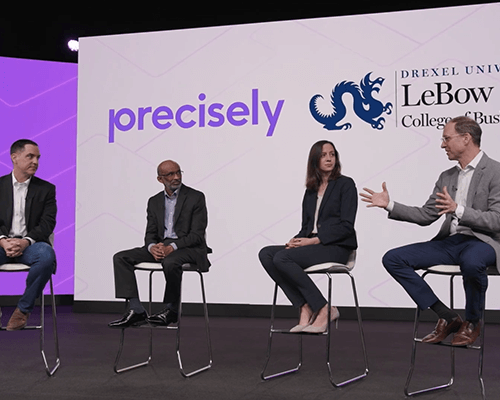
77%
say data-driven decision-making is the top goal of their data programs
only 46%
rate their data quality as “high” or “very high”
53%
rank data quality as their top priority for improving data integrity
76%
report reliance on accurate location data for decision-making.
Panelists noted an overall emerging focus on spatial analytics and location data for data enrichment, which is an important part of the big picture for data quality.
As the macro environment continues to shift, it’s clear that organizations will increasingly rely on fast, confident decision-making to survive and thrive. Ensuring data integrity has never been more crucial, and Precisely is the only company that can help you across that entire journey.
Watch the keynote for more insights on the path to data integrity.
2023 Data Integrity Trends & Insights
Results from a Survey of Data and Analytics Professionals
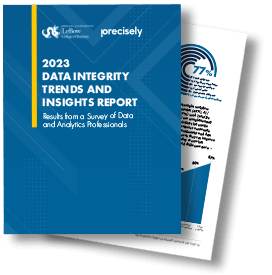
Watch the full panel
“More and more companies are looking at ways to enrich their data with third-party information because just having your internal data isn’t sufficient in this complex world.”
Murugan Anandarajan, PhD
Center for Business Analytics at Drexel University’s LeBow College of Business
Keynote
Innovations in Data Integrity
It’s more important than ever for businesses to innovate, compete, and grow. A comprehensive data strategy that’s built on a foundation of data integrity is a key component of success.
The problem for many organizations is a lack of resources. It becomes essential to do more with less – even as they build complex, hybrid, multi-cloud environments, move critical data workloads to the cloud, and address data quality challenges.
Solving complex data integrity challenges at scale comes down to having the right enterprise-grade technology that automates and streamlines those processes.
During their keynote, Anjan Kundavaram, CPO, and Emily Washington, SVP Product Management, highlighted the Precisely vision for data integrity, and how innovations in our Precisely Data Integrity Suite ensure accuracy, consistency, and context in data – with the scalability needed for a hybrid cloud environment.
Here are the six principles of our data integrity vision which guide how we innovate, create, and deliver our products. What does that ultimately mean for you? A whole new way to manage data integrity.
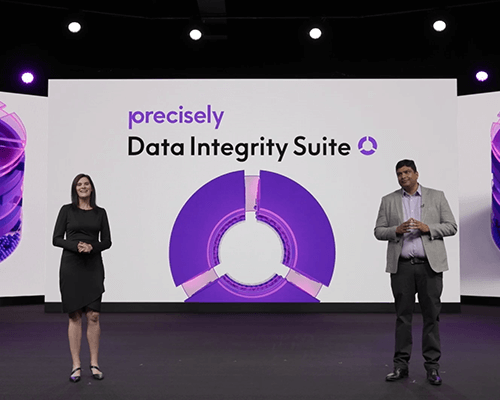
Business & IT
collboration
Real-time
access to data
Data integrity
processes run
where data lives
Shared business
and technical
metadata
AI-driven
data integrity
processes
Flexibility
and seamless
interoperability
Powered by this vision, we announced a massive expansion of capabilities within our Data Integrity Suite, including:
- a new Data Quality service that makes it possible for anyone to build data quality pipelines in minutes
- easy access to address validation, geocoding, and data enrichment
- new data observability features that provide alerts for schema drift, offer significance thresholds, and allow support for all major cloud data warehouses – giving organizations more insight and control over data observations than ever before
- a unified data catalog of business and technical metadata that connects all Suite services and provides easy searchability
- support for hundreds of new connectors for data integration
Watch the keynote to hear more about these enhancements and the Precisely vision for data integrity – and see demos created exclusively for our Data Integrity Summit that show valuable benefits and use cases for businesses like yours.

Watch the full keynote
“Precisely’s vision is to make data integrity in the world of modern data stacks easy – so you can do more, with less.”
Anjan Kundavaram, Precisely CPO
Panel
Modern Data Architectures
What does a “modern” data architecture mean for organizations in today’s landscape? What are the challenges faced and benefits achieved? How are tools for trusted data evolving to help meet a set of expanding needs?
To cover all this and more, Eric Yau, Precisely COO, hosted an expert panel featuring Sanjeev Mohan, Principal at SanjMo and former Gartner Research VP, Atif Salam, CxO Advisor & Enterprise Technologist at AWS, and Precisely Chief Technology Officer, Tendü Yogurtçu, Ph.D. Here are some of the top takeaways:
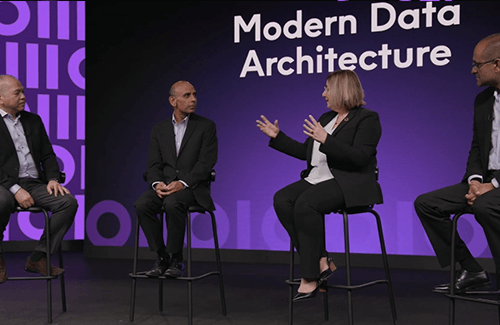

Data swamp prevention
In the past year alone, many businesses have shifted focus from building data lakes to preventing data swamps. The question now is how to federate their data and provide it to the business for timely insights.

Faster decision-making
“Businesses want to accelerate their time to value – they want to make decisions faster,” says Mohan, adding that streamlining modern data stacks is essential to achieving this. He also notes that cost reduction is a top priority in the face of economic headwinds.

Cloud adoption
Cloud adoption is key to creating a modern data architecture environment. It offers cost efficiency, rapid deployment, agility, and easier experimentation with new technologies like artificial intelligence and machine learning.

Becoming data-driven
Data quality, governance, and observability are essential to becoming data-driven – and they all need to operate on shared metadata. Organizations need tools that identify data quality issues faster to become more proactive instead of reactive. This proactivity requires those tools to be linked through metadata.
Watch the keynote for more from our panelists – including their best advice for keeping up with the rapid pace of change.
“Make data integrity a priority, not an aftermath thought. Data strategy, data governance … these practices have to be part of the data strategy.”
Tendü Yogurtçu, PhD, Precisely CTO
Keynote
Enterprise Intelligence:
Digital Differentiation with Decision Velocity
Organizations are focused on decision velocity – and they’re making investments in data technology and services to support that velocity and drive differentiation.
This push is no surprise, given the complexity and uncertainty of our digital environment. But what does it look like in practice? What are organizations doing to make decision velocity a reality?
We were excited to welcome Dan Vesset, Group Vice President of Analytics and Information Management at IDC, to our Data Integrity Summit for a special keynote on this topic. Here’s a preview of what Dan had to share:
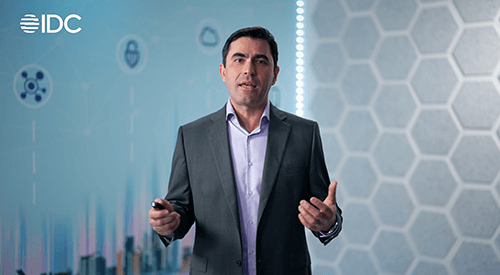

Decision velocity
Decision velocity is a combination of speed and control. An important part of maintaining control is ensuring data integrity.

Data decay
Data decay is a challenge. 75% of organizations surveyed by IDC say data loses value within days.

Top challenges
Top challenges to decision velocity include an inability to gain granular visibility into business processes, difficulty synthesizing internal and external data into information, and lack of trust in data and insights.

Progress
There’s been progress: 62% say they’re incorporating more automation (some of it ML-based) across the decision-making workflow; 64% say metadata is growing faster than raw data as organizations begin to organize their data; 39% are prioritizing budgets for streaming data analysis.

Data integrity investments
Data integrity investments are resulting in benefits like better quality and timeliness of decisions, greater trust in data, and increased frequency in data-driven decision-making.
See how to boost digital differentiation and value with greater decision velocity.
“Look at data no longer as a project, but as a product – an asset that both internal users and sometimes your partners or customers have readily available.”
Dan Vesset
Group Vice President, Analytics and Information Management, IDC
Panel
Demystifying ESG Reporting
With increased scrutiny and regulatory attention around environmental stewardship, diversity and inclusion, data privacy, and more, it’s no surprise that environmental, social, and governance (ESG) initiatives are top of mind for organizations across the board.
But to be transparent and compliant, businesses that implement ESG initiatives need to ensure data integrity in their reporting to produce the most meaningful sustainability outcomes.
Pat McCarthy, Precisely CRO, hosted a panel on this hot topic of ESG reporting. He was joined by Mikkel Skougaard, Director of ESG Reporting at Verisk Maplecroft, and Matthew Rusk, Head of North America for Global Reporting Initiative (GRI).
The panelists covered an array of topics on ESG reporting, including opportunities, challenges, and their own expert advice for efficiency and success. Here are the highlights:
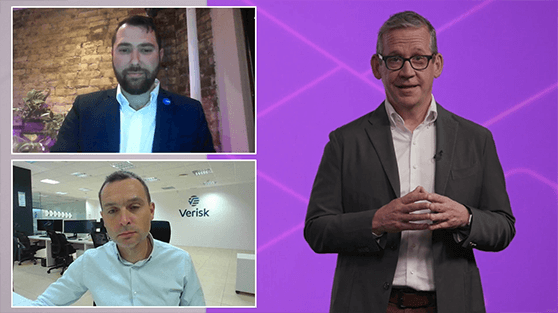

Treat financial & non-financial data equally
Treat non-financial data the same as financial data. Says Skougaard, “No one expects you to go from ‘zero to hero’, but I recommend that clients try to adapt the approach so that the same governance systems are put in place, and processes like data collection are automated in the same way.”

Stronger compliance, higher-quality reporting
Pushes to be more compliant result in better overall quality and trustworthiness of reporting. External regulations and internal mandates help organizations better align their data management and ESG reporting processes – creating a positive ripple effect for businesses reporting at large.

ESG reporting challenges
Global ESG reporting remains a challenge. There’s currently no global mandatory standard for ESG reporting, making it difficult for organizations to do their due diligence in a way that serves a wide array of stakeholder groups. “It’s really important that we have that global common language and latency across these different jurisdictions to be useful in making good business decisions because reporting is a means to an end,” says Rusk.

Effective ESG reporting
Effective ESG reporting requires data integrity – data with maximum accuracy, consistency, and context. Successful businesses know where their ESG data comes from – that includes context around its lineage, performance indicators, and factors that influence metrics across standards and industries.
Watch for more insights into accurate, effective, and compliant ESG reporting.
“If you have exploitation of people or planet, that is bound to hit your bottom line – it’s just a matter of when. So paying attention to your impacts, paying attention to your stakeholders, and going through that process of reporting … it’s not just for reporting’s sake. It is absolutely helpful to the business.”
Mathew Rusk
Head of GRC North America, GRI
Keynote
Customer Communication Management for Highly Regulated Industries
“Data is really the cornerstone for delivering excellent customer experiences,” says Chris Hall, Precisely SVP of Product & Operations for customer communication and engagement solutions.
In his keynote, Chris explores the importance of ensuring data integrity efforts align to customer communication practices to win hearts, minds, and loyalty. When every interaction can make or break a customer’s relationship with your business, there’s no room for error.
But what are some of the challenges to consistent, data-driven customer experiences? And how can your business tackle them? Here are some of the highlights:
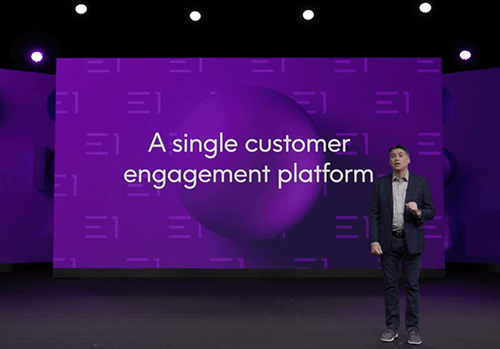

Make data accessible for more efficiency
Data accessibility is a problem – especially access to real-time data. This exposes companies to fragmented customer experience (CX), operational inefficiencies, and limited governance ability.

Streamline data integration to reduce risk
Simplifying and streamlining data integration and eliminating redundancy in data storage helps strengthen compliance for businesses in highly regulated industries.

Eliminate silos to enhance personalization
Businesses need to eliminate silos to gain a 360° view of the customer and provide them with personalization, consistency, and transparency. This is nearly impossible for organizations that use one or more IT solutions to support each communication channel.

Solutions for controlled and connected journeys
Forward-thinking companies deliver controlled and connected journeys with a unified customer engagement platform – enabling CX teams to manage, review, update, and audit all customer communications content from a single, browser-based user interface.
That last point is achievable with EngageOne RapidCX from Precisely, requiring only one integration to enjoy the benefits across all your channels – today and in the future. Those benefits include:
- reduced operating costs – typically up to 30% annually
- reduced change management turnaround – from an average of 90 days to just 1 day
- continuous regulatory compliance
Watch the keynote to hear more about the importance of data integrity for a strong CX, and see a demo that shows the power of EngageOne RapidCX in action.
“Many companies use siloed communication solutions, typically one or more solutions to support each communication channel. This makes it almost impossible to deliver controlled and connected customer journeys where each communication and interaction is personalized for maximum impact and clarity.”
Chris Hall
Senior Vice President of Product & Operations for customer communication and engagement solutions, Precisely
Watch the full keynote
Ensuring Data Integrity Today, Tomorrow, and Beyond
Now that you’ve gotten the highlights from our Data Integrity Summit – let’s talk.
What are your own priorities on the road to data integrity? Developing a data strategy? Improving data quality? Breaking down data silos? Adding rich context through data enrichment and location intelligence?
Our team at Precisely can help with it all. We want to hear from you and tailor an approach that’s ready to meet and exceed your unique business objectives. Let’s work together to unlock better decisions and new possibilities grounded in trusted data.

The Data Integrity Summit
Additional Resources
analyst-report
product-demo
Data Integrity
analyst-report
Data Integrity
Data Integrity
Data Integrity